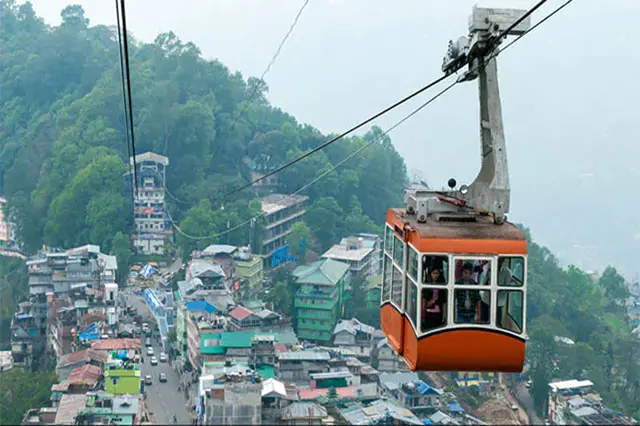(Vrindavan Today News) – Barsana Ropeway likely to be operational from February
2024.01.19 (Vrindavan Today News): The much awaited Barasana Ropeway is likely to be operational from the month of February. The necessary equipment, including trolleys and ropes, has been dispatched from China and is expected to arrive at the site within the next week. Once delivered, the installation process will begin, marking a crucial phase in the completion of this project.
The Barasana Ropeway project, with an estimated cost of around 15 crores, aims to facilitate easy access to the Radha Rani Temple situated atop the Brahmanchal Hill. The ropeway, spanning approximately 300 meters in length and 150 meters in height, is set to be operated by a Delhi-based company upon completion.

Mansa Devi Ropeway Haridwar
The project faced delays due to the COVID-19 pandemic, particularly in the procurement of essential equipment such as ropes and trolleys from China. However, with the recent arrival of the equipment in India, the construction is expected to be completed by February. Following this, devotees will have the opportunity to reach the Ladli ji temple with ease, making their pilgrimage more accessible and convenient.
Presently, there are 251 steps that pilgrims must climb to reach the Radha Rani Temple located on the Brahmanchal hill in Barasana. The ascent poses challenges, especially for the elderly and children, considering the absence of the earlier palki service that used to operate. Vehicles currently navigating the steep path add an element of risk. Recognizing these challenges, the Mathura Vrindavan Development Authority (MVDA) is undertaking the Barasana Ropeway project to ensure a safer and more convenient passage for devotees.

Pillars of the unifinished Ropeway Project
This initiative, in the works for nearly a decade, encountered various hurdles, including land acquisition issues and the time-consuming process of obtaining permissions to fell trees in the vicinity. Additionally, the project faced setbacks during the lockdown in China, further impeding progress. Despite these challenges, the commitment to making the Radha Rani Temple more accessible has fueled the efforts to bring the ropeway project to fruition.
The project not only promises to enhance the pilgrimage experience but also reflects the dedication to preserving the cultural and religious heritage of the region.
[ad_2]
Read Full Story at Vrindavan Today







